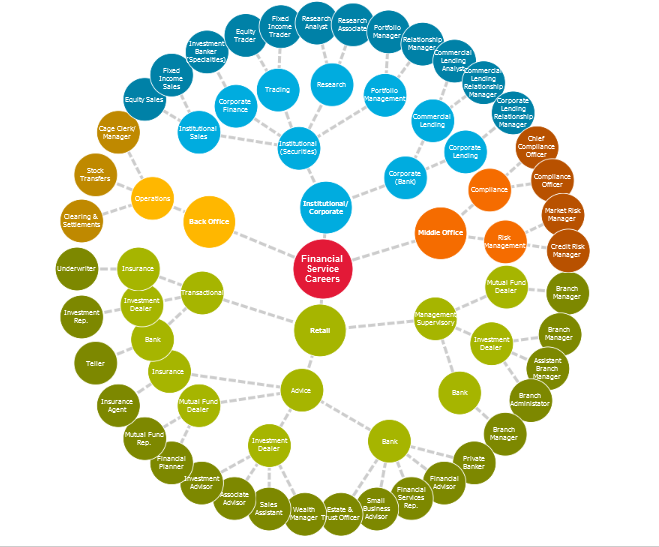
If your organization relies on critical infrastructure to operate, you may benefit from a cyber security assessment. These evaluations examine operational resilience, cybersecurity practices, organizational management of external dependencies, and other key elements of a robust cyber framework. These assessments can strengthen the security and stability of your business.
Red-teaming
Red-teaming cybersecurity assessment services allow companies to better understand their security systems and protect them against cyberattacks. These teams use open-source and proprietary intelligence tools to simulate real-world attackers and carry out reconnaissance and attack situations. In some instances, the teams will use social engineering techniques to gain access to data and network resources. The teams will then increase their privileges in order to achieve persistence and establish command-and-control infrastructure.
Red-teaming is expensive so be sure to budget in advance. It is possible to spend a significant amount on a full-spectrum simulation attack, especially if you are able to use social engineering or physical intrusion. Before you hire a red team, it is important to determine how much risk you are willing to take. Some companies can handle a high degree of risk while others can accept a lower level.

Penetration testing
Penetration testing is a critical component of a cyber security assessment. It is the use of automated tools in an attempt to exploit security flaws. The goal is to gain access to the target information and gain valuable data. The techniques used in penetration tests depend on a thorough knowledge of the system and applications being tested. Penetration tests are often interpreted as being limited to external attacks. Security researchers have prepared a webinar on the topic and posted a blog post to help correct this misconception.
Penetration testing is an automated and manual process that uncovers weaknesses in networks and systems. External and internal penetration tests can be vital to ensure the security of an organization. Penetration testing is used to determine whether an intruder could carry out malicious activities on the network. An independent red team can conduct these tests to determine the existence of vulnerabilities and how effective controls and defenses are in place.
Configuration testing
An important step in identifying weaknesses in the IT environment of an organization is a security assessment. This involves mapping access control points and services to determine weaknesses and the potential for security breaches. It also identifies any security patches that may be missing from a system. After the assessment is completed, you can identify the steps needed to close the security gaps.
CSAs are often performed by teams made up of certified cyber professionals. Many of these professionals are former UK Government Cyber Operations Specialists and have extensive knowledge regarding security vulnerabilities. The testing teams typically will include at most one CISSP certification holder.

Social engineering
Social engineering attacks are becoming a major concern for companies. Companies should have the necessary defenses. It is important to be aware of your vulnerabilities, particularly in email. This will help you defend yourself. Unsolicited emails should be investigated to ensure they are genuine and that there is no malicious code.
An important tool to identify vulnerabilities and to take steps to reduce them, is a social engineering cyber security assessment. These assessments include detailed analyses and analysis of any online information that could be a risk. This assessment may also include simulations to assist employees in avoiding being the target of a scam.
FAQ
What can I count on from my consultant to help me?
Once you select your consultant, you should expect to hear back from them within a few days. They will ask you for information about your business, including the mission, goals, products, and budget. Then, they'll send over a proposal outlining the scope of work, estimated time frame, fees, deliverables, milestones, etc.
If all goes according to plan, the two sides will sign a written deal. The terms of the contract will depend on the type of relationship between the two parties (e.g., employer-employee, employer-independent contractor).
If everything goes well, the consultant should start work immediately. You will have access both to your documents and internal resources and the consultant's skills and knowledge.
However, don't assume that just because someone is a consultant that s/he knows everything. It takes practice and hard work to become an expert in the field you are consulting. Don't expect your consultant know everything about your company.
How is consulting different to freelancing
Freelancers can be self-employed people who provide their services to clients, without the involvement of employees. They usually charge an hourly rate based on how much time they spent on a project. Consultants often work for companies or agencies that employ them. Their salaries are often paid monthly, or annually.
Because they set their own hours and prices, freelancers are often more flexible than consultants. But consultants have more benefits like vacation days, health insurance and retirement plans.
Which industries employ consultants
There are many different types. Many consultants specialize in a particular type of business. Others may be more focused on multiple types.
Some consultants work only for private companies, while others represent large corporations.
And some consultants work internationally, helping companies all over the world.
Who hires consultants
Many businesses hire consultants to assist them with their projects. These can include small businesses and large corporations, government agencies as well non-profits and educational institutions.
Some consultants work directly with these organizations while others freelance. In both cases, the process for hiring depends on how complex and large the project is.
There will be many rounds of interviews for consultants when you are looking to hire. Only then can you select the right person to fill the position.
What qualifications does a consultant need?
It's not enough just to have an MBA degree; you must also demonstrate experience working as a business consultant. A minimum of two years' experience in consulting, training and/or advising a major company is necessary.
You will need to have worked closely alongside senior management teams in order to develop strategy projects. This means you'd have to be comfortable presenting ideas to clients and getting buy-in.
A professional qualification exam like the Certified Management Consultant (CMC), Chartered Management Institute, is required.
What are the advantages of being a consultant?
Consultants are able to pick when and where they want to work.
This means you can work whenever you like and wherever you wish.
It means that you can change your mind easily without worrying about losing your money.
Finally, you are able to manage your income and make your own schedule.
What type of contracts are available to consultants?
When they are hired, most consultants sign standard employment contracts. These agreements detail the length of the consultant's contract with the client, the amount he/she is paid, and other important details.
Contracts also specify which areas of expertise the consultant will focus on and how the consultant will be compensated. A contract may state that the consultant will deliver training sessions or workshops, webinars, seminars and other services.
Sometimes, the consultant simply agrees that a specific task will be completed within a set time frame.
Consultants often sign independent contractor contracts in addition to their standard employment agreements. These agreements allow consultants to work independently while still receiving payment.
Statistics
- According to IBISWorld, revenues in the consulting industry will exceed $261 billion in 2020. (nerdwallet.com)
- My 10 years of experience and 6-step program have helped over 20 clients boost their sales by an average of 33% in 6 months. (consultingsuccess.com)
- "From there, I told them my rates were going up 25%, this is the new hourly rate, and every single one of them said 'done, fine.' (nerdwallet.com)
- So, if you help your clients increase their sales by 33%, then use a word like “revolution” instead of “increase.” (consultingsuccess.com)
- According to statistics from the ONS, the UK has around 300,000 consultants, of which around 63,000 professionals work as management consultants. (consultancy.uk)
External Links
How To
How do you find the best consultant?
It is important to first ask yourself what you expect from a consultant when searching for one. Before you start looking for someone to work with, it's important that you know your expectations. Before you start looking for a consultant, make a list. This might include skills such as project management, professional expertise, communication, availability, and technical skills. Once you've listed out these requirements, then you may want to consider asking some friends or colleagues who they would recommend. Ask them about their experiences with consultants and compare their recommendations to yours. If you don't have any recommendations, try doing some research online. You will find many websites such as LinkedIn, Facebook Angie's List, Indeed and Indeed where people can leave reviews about their past work experiences. Look at the ratings and comments left by others and use this data as a starting point for finding potential candidates. After you've compiled a list of potential candidates, it is time to reach out to them and schedule an interview. Talking through your requirements during the interview is a good idea. Ask them questions about how they can assist you in achieving those goals. It doesn’t matter who recommended them to you, just make sure they understand what you are trying to achieve and how they can help.